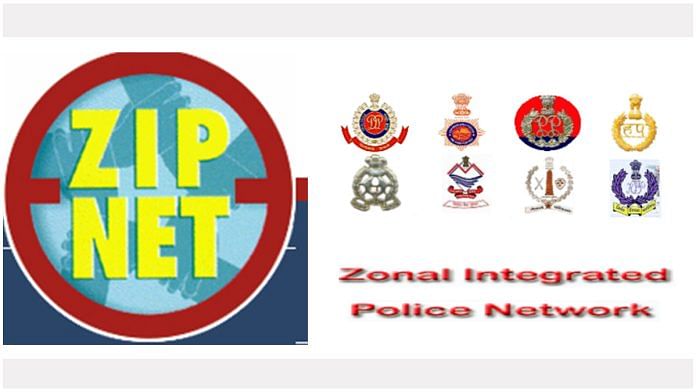New Delhi: On the evening of 15 November, a distressed father desperate to get any information about his missing daughter received a call from an unknown number. The caller, to the father’s delight, said he was aware of her exact whereabouts and could share what he knew in exchange for Rs 8,000. The father transferred the amount to a QR code shared with him, only to find out later that he had been duped.
Last week, the Delhi Police (North) arrested 28-year-old Shyamsunder Chauhan from Mau in Uttar Pradesh for cheating the man to the tune of Rs 8,000. Around the same time, Delhi Police also arrested 19-year-old Mohammed Shabir for employing a similar method to extract Rs 1,500 from a person who had reported the theft of his motorcycle.
There was a common thread between the two cases. The victims had their phone numbers registered on the Zonal Integrated Police Network (ZIPNET) — a database prepared and coordinated by police departments in Delhi-NCR, Rajasthan, Uttar Pradesh, Uttarakhand, Punjab, Haryana, Himachal Pradesh and Chandigarh.
The idea behind it is to maintain details about missing persons or stolen valuables in one place for it to be accessible to police across states.
Also Read: Delhi police arrest 4 for ‘advertising personal data of Indians’, probe role in ICMR leak
Modus operandi involving ZIPNET
Police sources told ThePrint that Chauhan’s scam was first brought to light by a Burari resident who on 15 November filed a complaint at the Wazirabad police station about his missing daughter.
The complaint was registered and details of the complainant were uploaded on the ZIPNET portal. Hours later, the complainant allegedly got a call from a person who claimed to be with his daughter and said she did not have access to basic necessities.
According to the police, Chauhan asked the parents to transfer a sum of Rs 8,000 to a QR code in exchange for the girl’s exact whereabouts.
This, said officers, was the modus operandi Chauhan used to dupe more than 900 individuals in Delhi but they never reported the scam since the amount sought by him was not very significant.
“He used to call people claiming to be a police officer or the person responsible for solving the case and bringing the missing children back and used to seek money for travel expenses sometimes. However, because the amount was too low, people did not come forward,” said one officer.
The police sprang into action after an officer received a verbal complaint about a man who filed a missing person complaint and later received a call from someone claiming to be an officer attached to the Civil Lines police station and taking money in exchange for information on the missing child.
After the case was brought to notice, police started looking at similar incidents reported in the past. It was at this time that the person duped of Rs 8,000 came forward with his written complaint and a case was lodged.
“The accused duped 904 people from Delhi NCR region and aggregated around Rs 10,000 for the last few months based on the same model. We tried to unearth the module as soon as possible to stop the misuse of the data of people who were in desperate situations” DCP Meena told ThePrint.
Police officers probing the case added that scammers like Chauhan exploit parents/family members who are desperate to find their loved ones.
In the other case of misuse of ZIPNET data, Shabir relied on the mobile number of a man who had lodged a case of motorcycle theft at the Sarai Rohilla police station.
According to the FIR in this case, which ThePrint has seen, a day after the man registered a complaint, he received messages and calls on WhatsApp from the scammer who was able to verify his personal details.
The scammer allegedly told him to transfer Rs 5,000 in exchange for the exact location of the bike at Kishan Ganj railway station. Upon hearing this, the complainant rushed to the Kishan Ganj railway station but could not find his motorcycle, which is when he reached out to the scammer again.
This time, the scammer insisted that the complainant transfer Rs 5,000 to a particular QR code. According to the complainant, he transferred Rs 1,500 but the scammer insisted that he send the remaining Rs 3,500.
However, the two were not able to reach an agreement and the scammer eventually blocked the complaint’s number.
Officers probing the case said since the complainant provided the mobile number used by the scammer, investigators zeroed in on an address in the Mohan Garden area of Uttam Nagar but could not apprehend him.
They then obtained an IMEI search report of the number which took them to a lady in Uttam Nagar and she informed them that she had given her number to her brother Mohammed Shabir who was working in Punjab.
This is how Shabir was apprehended from Punjab’s Jalandhar on 12 December.
(Edited by Amrtansh Arora)
Also Read: Deepfake or not? How scammers used ‘morphed’ video of retd IPS officer to ‘blackmail’ Ghaziabad man



